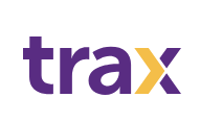
AI Enables Smarter, Faster Retail Insights
The business imperatives for CPG companies are fairly well understood. Products must be available on the shelf for shoppers to buy them and they must be merchandised in a way that aligns with all of the sales drivers that companies have learned over many years of studying category management principles. One challenge that has always persisted for companies trying to achieve these imperatives is how to measure the actual conditions instore to determine whether or not they match the goals and expectations of the CPG company.
Recent developments in artificial intelligence (AI) are helping CPG companies make strategic changes to how they manage the collection of in-store data and generate insights based on what they find. Here we highlight how three leading companies significantly improved brand visibility and increased sales using AI-powered solutions.
AI helps CPG and retail businesses overcome the blind spot of what actually happens in store aisles and F&B outlets, thereby sharpening their competitive edge.
By harnessing the power of deep learning and computer vision, AI applications allow sales reps to immediately discover critical product details regarding pricing, position and promotion. When tracked and analyzed for patterns and trends, this data offers the potential for more effective retail execution.
Several CPG companies have used Trax’s AI-powered solutions to increase revenue by enhancing the efficiency of sales reps, giving category managers insights on planogram compliance and product placement, and helping store managers make informed decisions on store conditions.
INCREASE EFFICIENCY OF REPS AND INCREASE ON SHELF AVAILABILITY
If you walked into the hair or skin care aisles in a supermarket in Germany, chances are that you would pick up a Henkel product. With more than 900 SKUs across 6 categories on retail shelves, Henkel Beauty Care is a global leader in the segment, and like any other giant, they had their own share of problems in the aisle.
In the past, the merchandizing team conducted manual shelf audits, which was so time intensive that it consumed nearly 50 minutes of every hour in store leaving only 10 minutes for actual selling activities.
Using Trax Retail Execution allowed them to simply capture shelf images using their smartphones. The images were analyzed on the Trax cloud and converted to meaningful insights in near real-time.
This simple shift decreased the time spent on distribution checking and data collection by 50 percent and gave reps 150 percent more time to unlock revenue generation opportunities.
90% of Henkel’s beauty care revenues comes from their top 10 brands. Capturing granular information at the SKU level gave them access to rich in-store data that allowed the team to identify which of their core products were missing on shelves, and reduce out-of-stock by 4.3 percent. The ensuing corrective action led to a revenue uplift of more than 2 percent within three and a half months.
REALIGN MARKET STRATEGY AND INCREASE MARKET SHARE
As one of the largest bottlers and distributors of ready-to-drink beverages in the Asia Pacific, Coca-Cola Amatil is constantly fizzing up its retail execution strategy.
The company wanted to remain vigilant regarding a category – iced tea – that had traditionally performed well. Coca-Cola had a 15 percent higher product penetration rate than its closest competitor. However, after working with Trax Retail Execution, the company discovered that it had fewer total facings (-4 percent) than its main competitor.
Coca-Cola Amatil quickly learned that stores that stocked Coca-Cola’s iced tea averaged 3.76 different flavors of the brand, while stores stocking the competitor’s products averaged 6.58 flavors, leading to greater shelf share. Yet, this was only true for two of four focus regions.
So instead of offering a new promotion across all stores, Coca-Cola targeted the regions in need of increasing market share against the competition. This strategy resulted in 5 percent market share growth in just two weeks, yielding a significant increase in net sales.
MONITOR BRAND COMPLIANCE AT POINT-OF-SALE
Another giant bottling company, Coca-Cola Hellenic Russia worked with Trax to address the lack of a third-party auditing system for on-trade channels such as the HoReCa (Hotel/Restaurant/Café) sector, gas station convenience and quick-service restaurants. The company was completely dependent on sales reps and needed a robust audit mechanism to assess brand presence and compliance at these outlets.
We helped the company monitor adherence to merchandizing standards and assess the impact of in-outlet brand engagement activities. Our solution recognized images of key activation merchandise, which were analyzed to track compliance with the planned merchandising standards for each outlet type. For example, images of a “Combo”, which capture instances of beverage glass, food item and price discount combinations on a menu or display.
The solution helped streamline the brand activation audit process across outlets, securing the best value for money from the agreed touch point plans.
As these examples show, AI can be a robust ally for CPG companies aiming to stay ahead of the competition. Solutions such as those offered are fast becoming the source of shelf truth, allowing companies to increase share-of-shelf and revenue as well as maintain compliance with merchandizing standards and plans.


